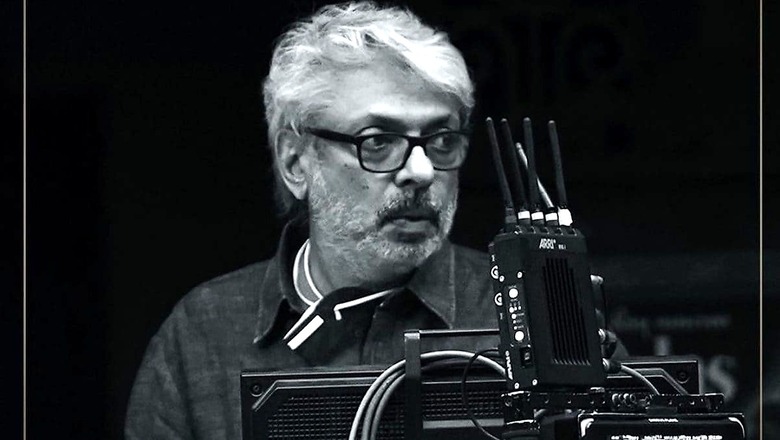
views
Sanjay Leela Bhansali, known for his opulent cinematic sets, including the grand Chittor Fort in Padmaavat and the expansive Heera Mandi in his latest Netflix series, comes from a background that contrasts sharply with the grandeur he brings to the screen.
In a recent interview with The Hollywood Reporter India, Bhansali opened up about his modest upbringing in a 300-square-foot chawl in Mumbai, revealing how his childhood shaped his creative vision and filmmaking style.
“I come from a small little chawl, in a 300-square-feet, colorless space,” Bhansali began, his voice cracking with emotion. Growing up in a cramped environment with his family, where every inch of space mattered, Bhansali shared that his childhood shaped his perspective on the world. While the walls of the chawl had no colour, his imagination was alive with dreams.
His family’s connection to cinema, though marked with financial struggles, was an essential part of his early life. Bhansali recounted how his father invested in a film called Jahazi Lutera, only for it to meet with failure. The heartache continued with his grandmother, who scraped together Rs 10,000 and invested in a film called Sone Ke Haath—a gamble that never paid off. The pain of these lost dreams left an indelible mark on Bhansali’s young mind.
The contradictions were clear: His family could barely make ends meet, but their love for cinema never wavered. Bhansali’s mother, a talented dancer, would perform in a tiny 100-square-foot space in the chawl. “After that, my heroines danced in the biggest sets ever shot in Hindi cinema,” Bhansali said, his eyes welling up. He shared how the small, unfulfilled world around him made him reject realism. For him, the dream world of cinema was the only escape from the harsh reality.
But these experiences didn’t just shape Bhansali’s filmmaking, they fuelled his creative angst. “I’ve made very big films. I’ve earned the right to make big films. But it’s all born out of the chaos of my life,” he said. His films, he explained, are personal, uncomfortable, and at times, difficult to watch. “My films will never be the blockbuster that other directors would give,” he acknowledged. “It is not about counting crores. It is about the impressions that came on to me as an artist.”
Cinema, for Bhansali, is more than just a craft. It’s his religion, his family, his love, he said. He’s candid about the fact that his works are born from his experiences, and his subconscious. “In some birth I may have been a poet. In some birth I may have been a musician. But in this birth, I am a filmmaker,” he said. It’s this raw honesty, the complexity of his inner world, that drives his work.
“So all that cinema that comes out of Devdas is a tribute to that alcohol bottle my father cherished. And then I have every film as a subtext. From that subtext comes out the natural expression. It is not, here is a story of a spy who goes here and does this, and then there was action, and there was beautiful dialogue. No, no, no. It is personal cinema,” he added.


















Comments
0 comment